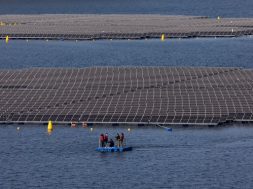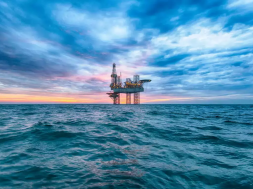
U.K. Conservatives Propose Energy Price Cap to Lure Voters Before June Election
The U.K. Conservative Party is pledging to cap the majority of household gas and electricity prices if Prime Minister Theresa May consolidates her position in the general election June 8. Energy regulator Ofgem would set a maximum price for the 70% of households that pay suppliers’ standard tariffs, according to a Sunday Times article that was confirmed by Work and Pensions Secretary Damian Green. The government also unveiled a plan on Friday to boost investment in clean energy and electric cars, following the surprise announcement earlier in the week of a general election in June. The 4.7 billion-pound ($6 billion) R&D program earmarks funding for batteries and driverless cars, in addition to medicine and robotics, according to U.K. Business Secretary Greg Clark.
The election, which will come three years earlier than planned, is intended to strengthen the government’s hand going into Brexit negotiations. Officials are seeking to convert the country’s early adoption of renewables into a global business that can generate exports and income once the U.K. leaves the European Union. In other U.K. news last week, Macquarie Group announced a long-awaited deal to buy the Green Investment Bank (GIB) from the U.K. government for 2.3 billion pounds. The GIB was set up by the British government in 2012 to accelerate the nation’s transition to a low-carbon electricity system and has backed projects from wind farms to biogas plants. The bank was sold as part of a drive to raise money from privatization.
Macquarie told Bloomberg News in an interview last week that as the new owner of the GIB it would endorse an equity investment in the U.K.’s groundbreaking tidal lagoon project in south Wales, were the government to approve the program. The 1.3 billion-pound ($1.7 billion) project would be the first of its kind in the world, and would provide a significant economic boost to a region of the U.K. with high levels of unemployment. In the Americas, Brazil held an auction yesterday for 35 contracts to build and operate transmission lines covering 7,400 kilometers (4,600 miles) over 20 states. Brazilian companies dominated the government-organized tender, which attracted as much as 12.7 billion reais (about $4 billion) in investments. The government plans to hold a further two auctions for transmission capacity in 2017 in order to complete a much-needed expansion of power lines.
In other emerging-market news, the International Finance Corp. launched a $2 billion green bond fund last week in partnership with asset manager Amundi. The fund aims to bolster green bond issuance from local institutions and is expected to be fully invested in green bonds within seven years. In Europe, the economics of offshore wind are improving more rapidly than anyone thought after developers bid to supply power from offshore wind parks in the North Sea at a record-low weighted average of 4.40 euros ($4.67) a megawatt-hour, in an auction by Germany’s electricity grid regulator in mid-April. The bids are well beneath the market price for power in Germany, meaning that developers including Energie Baden-Wuerttemberg and Dong Energy are betting they can supply electricity to the grid even without government support, by the time the projects are commissioned in 2025. The developers will have forecasted technological development, including larger turbine sizes, to justify their record low bids.
Macron, Le Pen Clash on France’s Nuclear Future
The two remaining candidates for the French presidency have markedly different energy strategies: centrist Emmanuel Macron has pledged 15 billion euros for greening the French energy sector and wants to limit nuclear generation to 50 percent by 2025. His policies would therefore increase investment in renewables capacity to 144 billion euros over 2016-40 compared with 52 billion under far-right candidate Marine Le Pen. She wants a moratorium on new onshore wind projects and to extend all nuclear plants to an average lifetime of 50 years, leaving little room in the power system for significant renewables build.
By Dario Traum, senior policy analyst at BNEF
















